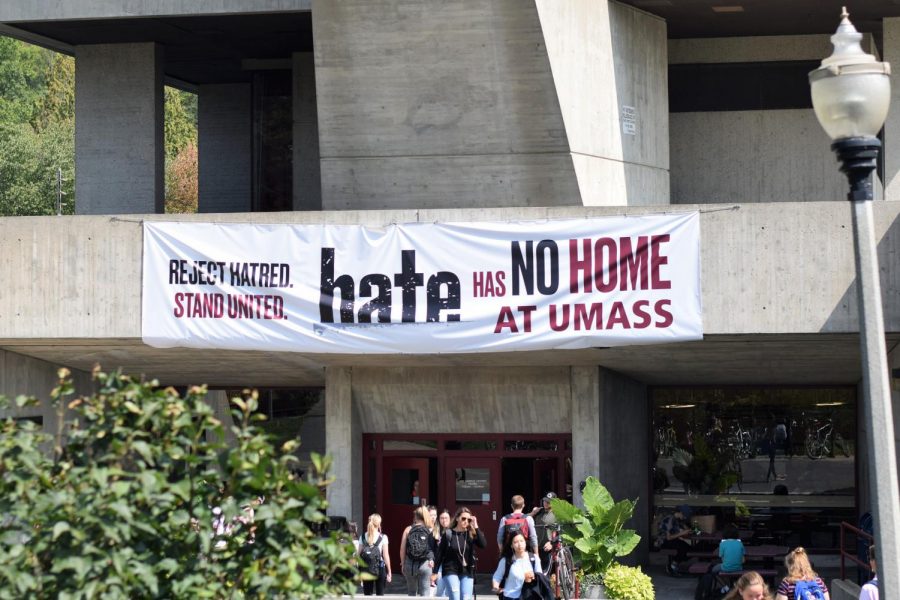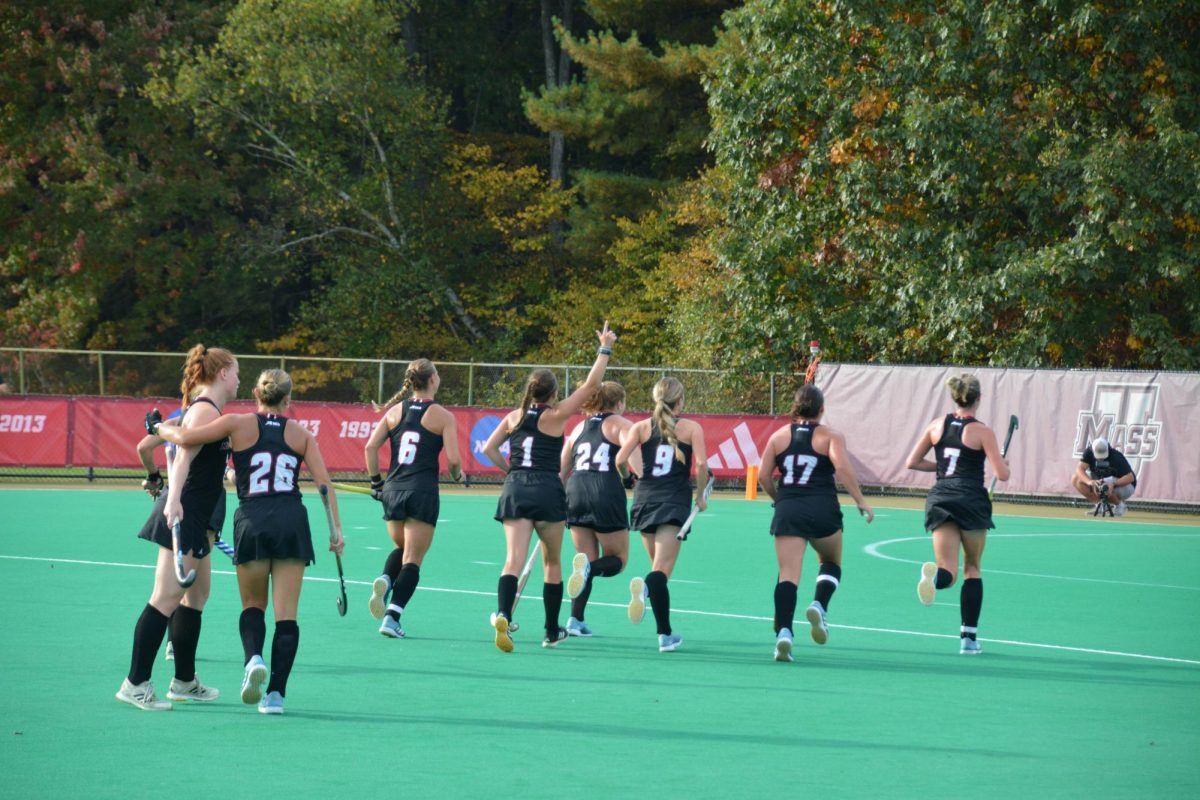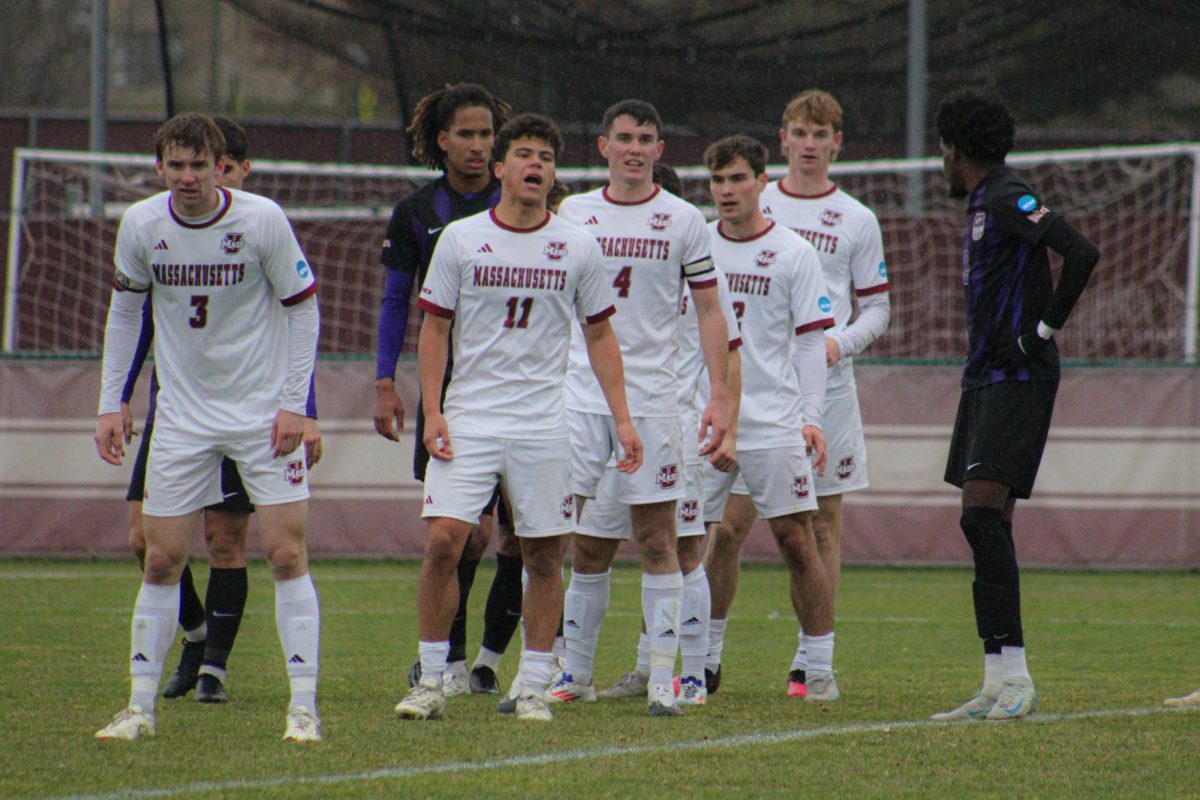This summer, I worked at a popular supermarket in my neighborhood, a close-knit community at the north end of Manhattan. I knew a lot of the customers personally. Either they were friends with my parents or I was friends with their kids. Nevertheless, even in our close-knit community, not all of my interactions were positive or thoughtful. During the summer a white supremacist organization, Identity Evropa, hung a banner in my favorite park. The banner read, “Stop the Invasion, End Immigration.” For me and many of my peers, this incident made us feel unsafe and angry.
A few days after the banner was hung, I spent my break sitting on a bench outside the supermarket, when two men sat next to me, loudly discussing politics.
“I refuse to speak Spanish and I don’t want to hear it. It’s the subversive language, the language of the immigrants,” one of the men said nonchalantly. I nearly choked on my food, he asked if I was okay and then our interaction began. It was angry, emotional and anything but thoughtful.
At first, I said things such as, “Why do you have to be so hateful in a public space? I’m just trying to have a peaceful break during a seven-hour shift.” However, the conversation escalated rapidly.
A friend of mine was walking by when the man said, “Your only job as a woman is to keep your legs shut until you get married.” I felt distraught as I yelled at him to get out of the neighborhood. I began to cry and my friend went as far as to call the police. I see the same man all the time. He shops at the supermarket often and every interaction we have leaves a terrible taste in my mouth.
This interaction is essential in understanding how I have seen political tension escalate since Donald Trump’s presidency. The increase of dogmatic conversations surrounding politics has only intensified, an overwhelming majority (86 percent) of Americans say conflicts between Democrats and Republicans are either strong or very strong, according to a new Pew Research Center survey.
I consider my neighborhood to be a Dominican neighborhood, where the primary language spoken is Spanish. I thought the last place I’d meet a Trump-loving Republican would be during a break from a job where almost every single person I work with speaks Spanish.
Last year on campus at the University of Massachusetts, even in the residence hall where I lived, I heard hateful language towards immigrants. I thought being at home would protect me from this hate, but the lack of respect and frequent dehumanization of minorities who are deemed outsiders has penetrated every community.
Political tensions have left people completely divided and leave no room for thoughtful interaction. Hateful language is being normalized and it’s expected that those who don’t want to hear it should suffer in silence or expect a blowout argument with no resolution. Nonetheless, UMass is taking a step forward in adding to its, “Hate Has No Home at UMass” campaign with the new slogan “Building a Community of Dignity and Respect: Honor differences. See the humanity in everyone.” This new slogan dives far deeper than “Hate Has No Home at UMass” ever did. This slogan doesn’t just put a Band-Aid on the deeper issue of political tension in the United States like “Hate Has No Home at UMass” did. This slogan recognizes the lack of dignity, respect and humanity in our current political climate and suggests an emphasis on thoughtful interaction helping more people feel safe.
We all have the right to freedom of speech, but that shouldn’t diminish the decency to treat one another with respect. Hateful language is disrespectful. You reserve the right to antagonize someone who voices hateful language, even if doing so makes you seem “disrespectful.” Disregarding how other people feel about their safety infringes on their humanity. Our interactions should not leave us distraught and with a bitter taste in our mouths. I, personally, want to work harder on being empathetic, thoughtful and less hateful for my own sanity and it’s encouraging to see that the University community is focusing on this as well.
Sonali Chigurupati is a Collegian columnist and can be reached at [email protected].




















Stewart stewenstern • Sep 4, 2018 at 10:05 pm
This story is complete bullshit. But other than that that neighborhood isn’t Dominican it is American. If you want a Dominican neighborhood then go to the Dominican.
amy lieu • Sep 4, 2018 at 8:39 pm
Hi,
This article ignores the hatred/racism towards Asians on our campus who are both envied/hated by white liberals for being the ‘model minority/ and by by other minorities because we perform staistically better than them on SAT’s and GPAs.
Where is the discussion and crying about racism towards Asians?
NITZAKHON • Sep 5, 2018 at 11:29 am
@Amy:
You’re not the “right kind” of colored person. You see, the Left likes to divide and conquer, and by keeping blacks and other minorities on the plantation, they get votes.
Asians, through their laudable success, tend to vote “R” not “D”. Why do you think the Left, cooing over illegal aliens and Islamic immigrants, are not also concerned for Venezuelans (now) and actively pushed away Vietnamese refugees (then)? Because the latter two, having had actual experience with Communism / Socialism, wouldn’t vote for it here.
But then the Left has always been the party of racism:
The Inconvenient Truth About the Democratic Party
https://www.youtube.com/watch?v=g_a7dQXilCo
NITZAKHON • Sep 4, 2018 at 10:05 am
Somehow I doubt someone told you to keep your legs shut. Yes, I think you’re lying.
As to immigration, there’s legal immigration and illegal immigration. My late mother was a LEGAL immigrant. My current wife is a LEGAL immigrant.
Stop illegal immigration is not “hate”, it’s a plea for the preservation of the nation. For without borders, there is no nation. (Which, of course, is the ultimate aim of the Left: destroy every nation.)